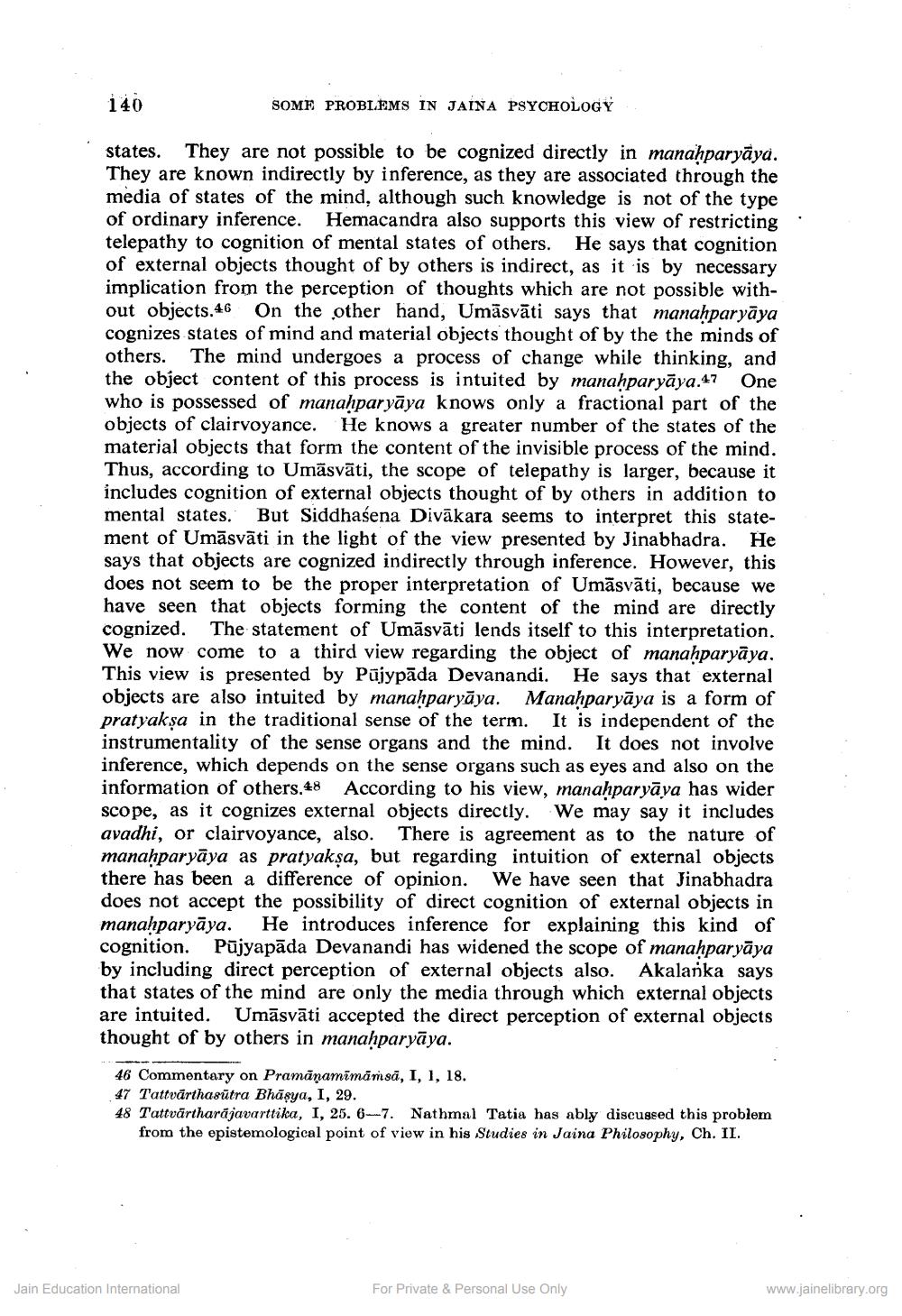________________
140
SOME PROBLEMS IN JAINA PSYCHOLOGY,
states. They are not possible to be cognized directly in manahparyāya. They are known indirectly by inference, as they are associated through the media of states of the mind, although such knowledge is not of the type of ordinary inference. Hemacandra also supports this view of restricting telepathy to cognition of mental states of others. He says that cognition of external objects thought of by others is indirect, as it is by necessary implication from the perception of thoughts which are not possible without objects.46 On the other hand, Umāsvāti says that manahparyāya cognizes states of mind and material objects thought of by the the minds of others. The mind undergoes a process of change while thinking, and the object content of this process is intuited by manahparyāya.47 One who is possessed of manahparyāya knows only a fractional part of the objects of clairvoyance. He knows a greater number of the states of the material objects that form the content of the invisible process of the mind. Thus, according to Umāsvāti, the scope of telepathy is larger, because it includes cognition of external objects thought of by others in addition to mental states. But Siddhaśena Divākara seems to interpret this statement of Umāsvāti in the light of the view presented by Jinabhadra. He says that objects are cognized indirectly through inference. However, this does not seem to be the proper interpretation of Umāsvāti, because we have seen that objects forming the content of the mind are directly cognized. The statement of Umāsvāti lends itself to this interpretation. We now come to a third view regarding the object of manahparyāya. This view is presented by Pūjypāda Devanandi. He says that external objects are also intuited by manahparyāya. Manahparyāya is a form of pratyakṣa in the traditional sense of the term. It is independent of the instrumentality of the sense organs and the mind. It does not involve inference, which depends on the sense organs such as eyes and also on the information of others.48 According to his view, manahparyāya has wider scope, as it cognizes external objects directly. We may say it includes avadhi, or clairvoyance, also. There is agreement as to the nature of manahparyāya as pratyakşa, but regarding intuition of external objects there has been a difference of opinion. We have seen that Jinabhadra does not accept the possibility of direct cognition of external objects in manahparyāya. He introduces inference for explaining this kind of cognition. Pujyapāda Devanandi has widened the scope of manahparyāya by including direct perception of external objects also. Akalanka says that states of the mind are only the media through which external objects are intuited. Umāsvāti accepted the direct perception of external objects thought of by others in manahparyāya.
46 Commentary on Pramānamimāmsā, I, 1, 18. 47 Tattvärthasūtra Bhāsya, I, 29. 48 Tattvärtharajavarttika, I, 25. 6-7. Nathmal Tatia has ably discugeed this problem
from the epistemological point of view in his Studies in Jaina Philosophy, Ch. II.
Jain Education International
For Private & Personal Use Only
www.jainelibrary.org




